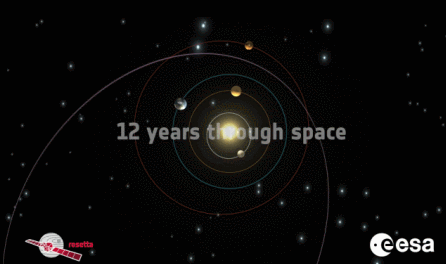Ubik
Nothing happens until something moves!
- Joined
- Jul 8, 2010
- Messages
- 19,439
Their retraction was firmly tongue-in-cheek, I think.



Funky little zooom tool on NASA website for the sharpest ever image of Andromeda.
http://www.spacetelescope.org/images/heic1502a/zoomable/
Their retraction was firmly tongue-in-cheek, I think.

Its surprising theres still so many flat earthers about. I read the other day that even the New York Times said it was impossible for the moon landings to happen as a rocket couldnt fly through a vacuum. They only retracted the statement the day after Neil and Buzz set off to the Moon.
While that would be absolutely momentous and would affect every aspect of life on Earth, I am much too worried that it could end up like an episode of Doctor Who, just without the Doctor lolBeautiful and frightening. It's crazy to think how insignificant we could be. If there really is life out there, I desperately want it to be found during my life time.
Found this gif on reddit, showing the path followed by Juno

On the flip side, I've got a buddy at work that would tell you that's all invented by NASA and that it's impossible to go to space.
Your friend's wife and my work buddy would have ALOT to talk about if they were to meet.My best friends wife is religious, and reckons that Dinosaurs are fake, and planted by scientists to debunk religion...she proves this, by saying that science is checked by scientists, and that carbon dating is made up...
She also reckons the earth is about 5,000 years old...
My best friends wife is religious, and reckons that Dinosaurs are fake, and planted by scientists to debunk religion...she proves this, by saying that science is checked by scientists, and that carbon dating is made up...
She also reckons the earth is about 5,000 years old...
My best friends wife is religious, and reckons that Dinosaurs are fake, and planted by scientists to debunk religion...she proves this, by saying that science is checked by scientists, and that carbon dating is made up...
She also reckons the earth is about 5,000 years old...

Is she Carl Everett by chance?
http://jorgesaysno.blogspot.com/2009/06/quote-of-day-carl-everett-on-dinosaurs.html

And then the machines colonise planet after planet, eventually forming the first Galactic Roboempire and enslaving the galaxy.Every time I see this thread bumped I open it hopeful of us finally making contact with aliens, only to be disappointed time and time again.
Do anyone else think that the advances in autonome and artificial intelligence is our biggest chance of exploring exoplanets and places far away in space? I reckon that with all the bottlenecks like speed, time, radiation, physiology etc. we won't be able to send actual humans far out in space for hundreds of years yet. Could sending AI be our only realistic chance of exploring for example the Kepler planets?
Anyone looking for a dose of a feeling of insignificance/marvel at the scale of the universe?
One day we will be able to travel in space at science fiction speeds but takes time and the fact the government keeps cutting the funds to NASA is not helping but at least I do hope to be alive and watch us humans to walk on Mars.Every time I see this thread bumped I open it hopeful of us finally making contact with aliens, only to be disappointed time and time again.
Do anyone else think that the advances in autonome and artificial intelligence is our biggest chance of exploring exoplanets and places far away in space? I reckon that with all the bottlenecks like speed, time, radiation, physiology etc. we won't be able to send actual humans far out in space for hundreds of years yet. Could sending AI be our only realistic chance of exploring for example the Kepler planets?
Every time I see this thread bumped I open it hopeful of us finally making contact with aliens, only to be disappointed time and time again.
Do anyone else think that the advances in autonome and artificial intelligence is our biggest chance of exploring exoplanets and places far away in space? I reckon that with all the bottlenecks like speed, time, radiation, physiology etc. we won't be able to send actual humans far out in space for hundreds of years yet. Could sending AI be our only realistic chance of exploring for example the Kepler planets?
Beautiful and frightening. It's crazy to think how insignificant we could be. If there really is life out there, I desperately want it to be found during my life time.
the German weekly Der Spiegel announced recently that astronomers have discovered an Earth-like planet orbiting Proxima Centauri, just 4.25 light-years away. Yes, in what is an apparent trifecta, this newly-discovered exoplanet is Earth-like, orbits within it’s sun’s habitable zone, and is within our reach. But is this too good to be true?

Are Earth Humans The 'Aliens' Early To The Universe's Life Party?
http://www.forbes.com/sites/curtiss...the-aliens-early-to-the-universes-life-party/
Doesn't make much sense to me to be honest. Why would our galaxy out of the 100-200 BILLION others in the universe (current estimate/guess) be the first? And if it was the first, why would Earth out of the 100 billion or so planets in the Milky Way (current estimate/guess, also we suck at naming our own galaxy) be the first to produce intelligent life?
I think its much more plausible that there's plenty of life out there but that our still incredibly primitive forms of looking for it just aren't up to the job yet. Feels like we're a medieval Irish lord looking out to the western sea with a crap telescope for 5 minutes and declaring that there can't be anything out there because we haven't seen it yet.
I suppose the article is asking - "How do we know that we aren't the first?". In truth we don't, we are merely playing probabilistic games based on our interpretation of what should happen based on how many galaxies, stars, potential planets there are , and what the age of the Universe is.
Absolutely, and in fairness to them pretty much everything at the moment is 'best guess' territory. I think it bugs me a bit though because of that tendency we have as a species to consider ourselves special. Some estimates of not just number of planets, but more specifically number of potentially habitable planets in the universe puts the number at something like 1,000,000,000,000,000,000,000 to 6,000,000,000,000,000,000,000. In other words, first life being on earth is roughly comparable to the odds of Moreno winning the Ballon d'Or this year.
Lisa Randall recently said she believes the Universe is probably full of life but we may never encounter it, which imo is a pretty reasonable position. I do agree that we are probably far too anthropocentric in our view of what life should be - we think we are alive and therefore we may not be alone based on a construct of knowledge that is unique to how our brains have evolved to interpret information.
I spent 2 and a half hours listening to Neil Degrasse Tyson yesterday on this and he made some good points, firstly that life elsewhere is virtually guaranteed on odds alone, but that by looking specifically for things that we think are required to sustain life, we may be missing places where life is abundant. Consider that we currently believe that water is required in order to sustain life, what if it isn't? We're basing that on our knowledge of human life and what is required on Earth. We used to think that sunlight is required for life, yet life is abundant at the bottom of the deepest oceans where sunlight cannot reach. Thinking about it from only a 'this is what is required for life on planet Earth' viewpoint may actually be hindering us when looking for life elsewhere in the universe, it's a fun thing to consider.
EDIT: Along the same lines as what Pexbo said.
When they say sunlight is required for life, do they not mean that the creature at the bottom of the sea relies on the sun indirectly. Like they feed on dead things that fall to the seabed, the oceans would be frozen if there was no sun ect?I spent 2 and a half hours listening to Neil Degrasse Tyson yesterday on this and he made some good points, firstly that life elsewhere is virtually guaranteed on odds alone, but that by looking specifically for things that we think are required to sustain life, we may be missing places where life is abundant. Consider that we currently believe that water is required in order to sustain life, what if it isn't? We're basing that on our knowledge of human life and what is required on Earth. We used to think that sunlight is required for life, yet life is abundant at the bottom of the deepest oceans where sunlight cannot reach. Thinking about it from only a 'this is what is required for life on planet Earth' viewpoint may actually be hindering us when looking for life elsewhere in the universe, it's a fun thing to consider.
EDIT: Along the same lines as what Pexbo said.
When they say sunlight is required for life, do they not mean that the creature at the bottom of the sea relies on the sun indirectly. Like they feed on dead things that fall to the seabed, the oceans would be frozen if there was no sun ect?
You're thinking of scavengers, there's other types of organisms that feed on chemicals and nutrients expelled by super hot vents at the bottom of the ocean so if there was an exoplanet with a hot core that provided heat as well as a source of nutrients then a Star may not be needed.When they say sunlight is required for life, do they not mean that the creature at the bottom of the sea relies on the sun indirectly. Like they feed on dead things that fall to the seabed, the oceans would be frozen if there was no sun ect?
You're thinking of scavengers, there's other types of organisms that feed on chemicals and nutrients expelled by super hot vents at the bottom of the ocean so if there was an exoplanet with a hot core that provided heat as well as a source of nutrients then a Star may not be needed.
